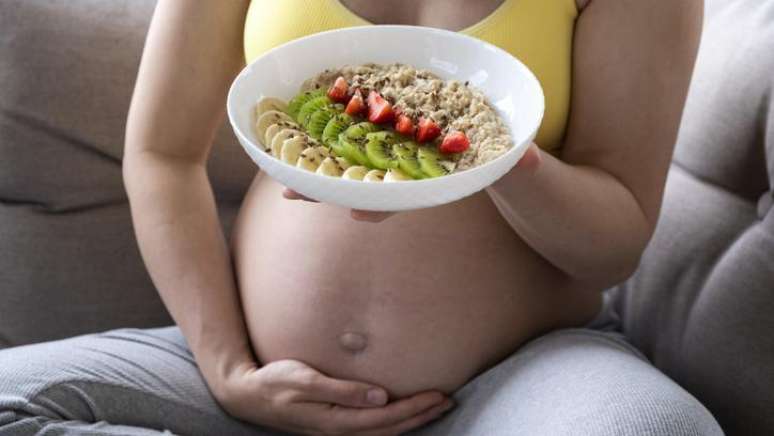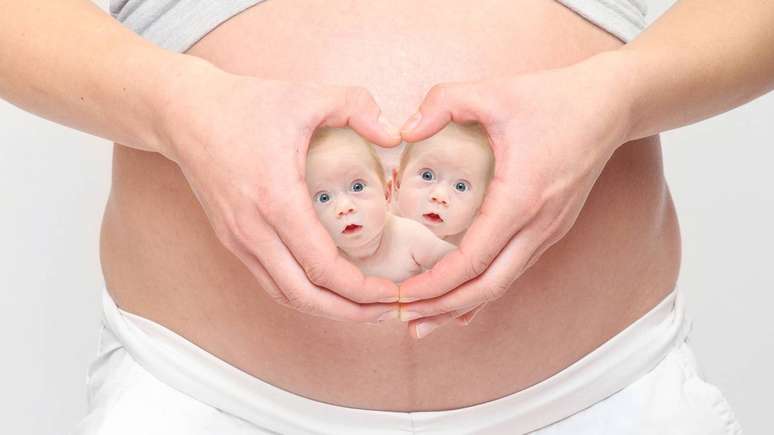Can the right foods really increase the chances of conceiving a child? Here are the facts.
html[data-range=”xlarge”] figure image img.img-096ce6e08af16bb7e319972b0657a6e7oroewy7p { width: 774px; height: 516px; }HTML[data-range=”large”] figure image img.img-096ce6e08af16bb7e319972b0657a6e7oroewy7p { width: 548px; height: 366px; }HTML[data-range=”small”] image figure img.img-096ce6e08af16bb7e319972b0657a6e7oroewy7p, html[data-range=”medium”] figure figure img.img-096ce6e08af16bb7e319972b0657a6e7oroewy7p { width: 564px; height: 376px; }
In any Internet human fertility chat room, one of the main topics of debate is often what to eat to amplify the chances of conception.
And alongside those countless supplements touted as fertility boosters, there are also a number of foods that are supposed to help you have a healthy pregnancy.
Of all the myths and marketing, what is the real proof that eating certain foods increases the fertility of men and women and helps in the development of the fetus?
When it comes to promoting a healthy pregnancy, a few nutrients can really make a difference. One of them is folic acid.
Folic acid, when given before and during pregnancy, has already been shown to help prevent anencephaly — a serious failure of the baby’s brain to form — and spina bifida, which affects the spine.
Because these problems occur early in pregnancy, often before a woman even knows she is pregnant, the U.S. Centers for Disease Control and Prevention recommends that all women of reproductive age get 400 micrograms of folic acid daily. .
Fortified staple foods, such as folic acid cereals, may offer even greater protection, as pregnancies are often unplanned. In 2019, fortification programs were estimated to prevent 22% of possible cases of spina bifida and anencephaly preventable by folic acid consumption, globally.
And folic acid can bring an added benefit. When taken as a supplement by women trying to conceive, it can increase the chances of pregnancybut more studies are needed to confirm this claim.
What about other foods and supplements? Is there a “fertility diet” that maximizes the chances of conceiving?

To answer this question, let us first detail the main reasons for infertility.
In the United States, even after a year of unprotected intercourse, 15% of couples fail to have children. The possible causes are many.
As for women, the ovaries may not be able to produce healthy eggs or eggs may not be able to move from the ovaries to the uterus, for example due to a blockage of the fallopian tubes. Or, even if the egg makes the successful journey, it may not attach to the uterine wall or survive once attached.
For men, sperm quality is critical to fertility, which includes their ability to move efficiently (motility), their shape and size (morphology), and their quantity in a given volume of semen (sperm count). ).
Several factors can affect sperm quality, including environmental issues such as pollution. And even with tests, the cause of infertility cannot always be clearly defined: 15% of infertility cases remain unexplained.
No specific food or supplement will provide a quick fix to any of these possible problems. But experts say the diet may have benefits for couples trying to conceive a child.
The most obvious is that good nutrition is essential. The consequences of malnutrition can be devastating to prenatal health.
The best-known findings in this area probably come from a study of children conceived during the so-called “Dutch Hunger Winter” in 1944 – an eight-month famine when the Nazis cut off food supplies to the Netherlands in the late 1940s. World War.
At the time, pregnant women lived on just 400 calories a day, which is only a fraction of the amount needed for a healthy pregnancy.
Children conceived that year faced a variety of health problems. They were smaller and thinner than those born before or after them, and their heads were smaller. In adulthood, they had higher rates of obesity, diabetes and schizophrenia, with a tendency to die younger.
For those who have access to enough food, getting the right mix of nutrients is also important. And while discussions of beneficial foods often focus on female fertility, there’s a growing awareness of the influence of diet on male fertility.
A 2015 study of couples undergoing IVF found that the men’s meat consumption, specifically the type of meat they ate, influenced outcome, as measured by the fertilization rate.
Higher consumption of poultry had positive impacts on fertilization rates, while consumption of processed meats (such as bacon and sausage) had negative consequences.
Men who ate the least processed meats (on average, fewer than 1.5 servings per week) had an 82 percent chance of getting pregnant with their partner, while men who ate the most processed meats, with an average of 4.3 servings a week, they only had a 54% chance.
And even after conception, the father’s diet can indirectly affect the child. A study from the University of Queensland in Australia concluded that what parents eat has a lasting effect on their children’s future health, even before birth.
The team of researchers analyzed feeding data from nearly 200 couples who received antenatal care at Australia’s largest maternity hospital, Mater Mothers Hospital, in the city of Brisbane. The study concluded that men’s diets have a strong influence on women’s diets, which, in turn, has consequences on child development.

Other studies indicate that father’s weight may have an intergenerational effect, influencing children’s weight.
“Men’s health and nutrition are overlooked when it comes to fertility, but they are very important,” says nutritionist Shelley Wilkinson, one of the study’s authors from the University of Queensland. “They can really affect the health of your grandchildren.”
Wilkinson now works at Australian private practice Lifestyle Maternity who specialize in fertility support. She also stresses the importance of coping with change as a couple.
“If one person follows the dietary guidelines, the other person is likely to do as well,” she says. “We need to focus on supporting women and men to make healthy changes. Otherwise, we’re losing half the battle.”
A beneficial change may be to increase the amount of fat in the couple’s diet, as long as it’s the right kind of fat.
Healthy fats are found in nuts, seeds, salmon, avocados and olive oil. But trans fatty acids — which can come from natural or industrial sources and are found, for example, in margarine, pasta, fried foods and other processed products — are associated with an increased risk of infertility.
A plant-rich diet can also be helpful. Researchers at the Harvard School of Public Health in the United States evaluated the diet of a group of 18,555 women over eight years as they tried to get pregnant.
The study linked consuming plant proteins (such as legumes) instead of animal proteins (such as red meat) with a 50% lower risk of ovulatory infertility.
The authors of A research analysis conducted in 2021 on the possible relationship between diet and female fertility concluded that although their recommendations focused on women, “diet and nutritional patterns are undoubtedly significant for male and female fertility”.
The researchers have provided a detailed breakdown of the effects of individual nutrients and the foods they contain. They also stressed the importance of involving a nutritionist in assisting couples planning a pregnancy.
In a nutshell, the review summary recommends foods such as vegetables, fruits, wholemeal pasta, and wholemeal bread (carbs); sources of healthy fats such as oily fish; and legumes, eggs and lean meats, for protein intake.

Researchers have also indicated the importance of certain nutrients that can sometimes be overlooked. One of them is iodine, which helps in the proper development of the fetus and in the thyroid function of the pregnant woman.
Regarding alcohol, the advice is clear and consistent across all inquiries. According to the U.S. Centers for Disease Control and Prevention, “There is no known safe amount to consume alcohol while pregnant or trying to get pregnant.”
This applies to all types of alcohol, including wine and beer. The advice is to abstain altogether.
If you have any questions or concerns about your diet and how it can affect your fertility, your best bet is to consult your doctor. And while some foods appear to play a positive role in fertility, it’s important not to overestimate their power.
Infertility is a complex issue, as are its causes. Worrying about what you eat can cause unnecessary stress, as well as feelings of shame and guilt.
People who have trouble conceiving can be reassured that the problem probably isn’t something specific they ate or didn’t eat.
Wilkinson says people with fertility issues will often seek out a single food that promotes fertility. But it’s best to aim for a general pattern of healthy eating.
“In fertility chat rooms, there’s a lot of talk about pineapple as some kind of magical fertility food if you’re trying to get pregnant,” she says. “But there isn’t a single food or supplement that works like this.”
* All content in this report is provided as general information only and should not be considered a substitute for advice from healthcare professionals.
The BBC is not responsible for any actions or diagnoses made by users based on the content of this website. The BBC is not responsible for the content of any external websites mentioned, nor does it endorse any commercial products or services mentioned or advertised on these websites. Always consult your doctor if you have any concerns about your health or that of your child.
read the original version of this report (in English) on the BBC Future website.
Source: Terra
Ben Stock is a lifestyle journalist and author at Gossipify. He writes about topics such as health, wellness, travel, food and home decor. He provides practical advice and inspiration to improve well-being, keeps readers up to date with latest lifestyle news and trends, known for his engaging writing style, in-depth analysis and unique perspectives.





![Tomorrow Belongs to Us: What’s in store for Wednesday 29 October 2025 episode 2063 [SPOILERS] Tomorrow Belongs to Us: What’s in store for Wednesday 29 October 2025 episode 2063 [SPOILERS]](https://fr.web.img2.acsta.net/img/bd/91/bd91cdd6caf823af3b0287cd39a943a5.jpg)



